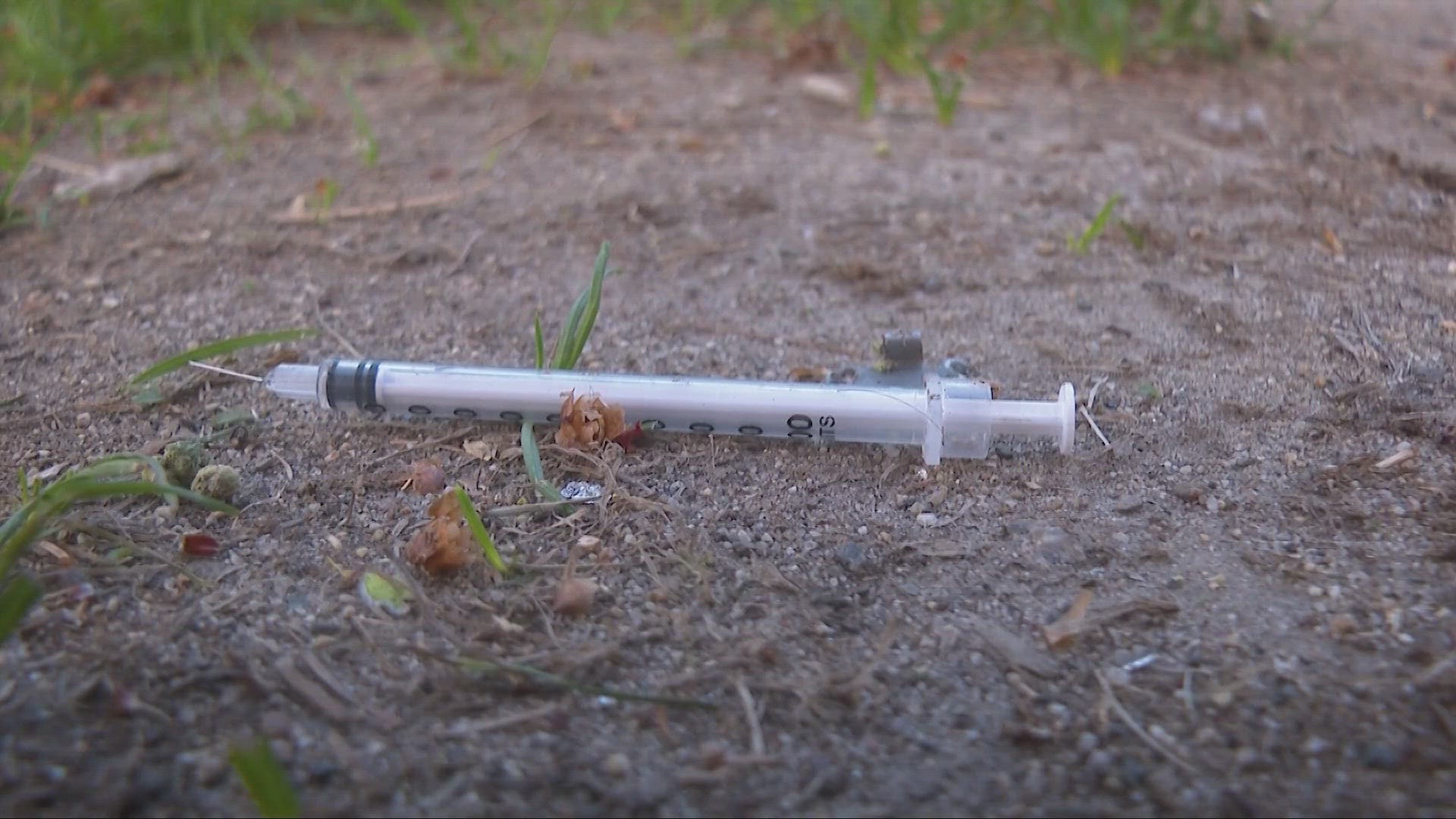PORTLAND, Maine — Twelve people on average have died every week since the start of 2023 from drug overdoses, according to the latest state data. Of more than 400 people who have died, 48 were people who died without a roof over their heads.
An outreach worker at Milestone Recovery estimates 85% of Portland's unhoused population living in the city's encampments have a substance use disorder.
The majority of the state's drugs are from Mexico and get into our state by Drug Trafficking Organizations, according to the Maine Drug Enforcement Agency. Those traffickers then seek out customers: particularly people already dealing with addiction.
"These DTOs are going to continue to do whatever it takes in any manner or method to get the drugs here," Scott Pelletier, a commander in the Maine DEA, said. "You're only limited in your imagination for how they get it here."
Pelletier said DTOs streamline drugs into the Northeast from the southern border by sending them, first, to major cities, like New York City or Hartford, CT. They, then, are sent to Massachusetts cities: Boston, Lawrence, and Lowell.
These mid-to-high level drug dealers, commonly from out-of-state, come to Maine to prey on people, target people who already have an addiction, Pelletier said.
"These dealers are not users. They are taking advantage of those who are experiencing substance abuse disorders here and using that to their benefit to make money," he said.
The dealers take advantage of people, including those in the state's most vulnerable populations: those experiencing homelessness.
"The majority of the people that are there [in encampments] are not kingpins, if you will, or major distributors. Are they distributing? Absolutely within their group, they are," he said. "Many of them are doing it out of survival and not a profit. They're selling or trading so they can get to buy more, to feed their own habit."
Milestone Recovery outreach worker Courtney Bass said an overwhelming majority of Portland's unhoused people have a substance use disorder. The majority of these unhoused people are also dealing with untreated mental health issues on top of their drug use.
"In the conditions they're living in, there really isn't any hope," Bass said. "They're basically feeling like it really doesn't matter if I wake up the next day."
Bass, who experienced homelessness and substance use disorder herself, said unhoused people are at a higher risk since they lack the stability of housing.
Portland Police Chief Mark Dubois attributes substance use disorder as the major fuel that keeps unhoused people trapped in this cycle.
"It's a combination of some limited housing, but there's also a huge impact of drug use which is fueling a lot of this," Dubois said.
Pelletier said the DEA does not target the day-to-day user or seller. Its goal has always been to arrest the mid-to-high-level trafficker.
"For us to target a population, let's just say the unhoused, what dent are we going to do to that? A person that's already struggling with homelessness, substance abuse disorders, mental health issues. Could we go down there and tip them upside down and maybe they have drugs on them? Ok, that's a possession charge. They're not going to jail. That's not going to help them. That's not what we do," he said.
Police have seen an increase in criminal activity in Portland's Park-and-Ride encampment, specifically. Dubois confirmed last week they increased their patrols at the encampment, targeting drug deals and human trafficking. Portland city spokesperson Jessica Grondin said the Park-and-Ride encampment will be designated as an emphasis area after Nov. 1.

